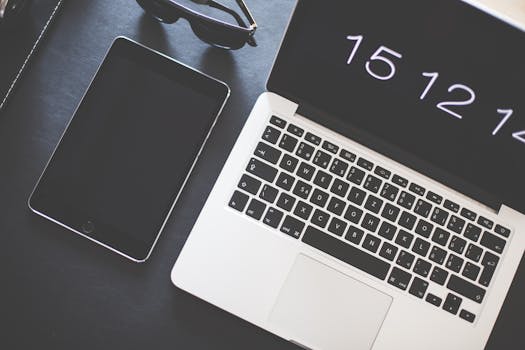What is time efficiency?

What is time efficiency?
Time efficiency refers to the ability to use time effectively and productively, ensuring that tasks are completed in the shortest period without compromising quality. In both personal and professional settings, mastering time efficiency can significantly enhance productivity and reduce stress. In this article, I’ll explore the core concepts of time efficiency, its benefits, strategies to improve it, and methods to measure it.
Understanding Time Efficiency
Time efficiency isn’t just about working faster; it’s about working smarter. It involves prioritizing tasks and managing time so that you can achieve your goals without unnecessary delays.
Defining Time Efficiency
At its core, time efficiency means completing tasks while minimizing wasted time and resources. This concept is crucial for productivity because it helps individuals and organizations maximize output without burning out. When you’re time efficient, every minute counts, allowing you to focus on what truly matters.
To dive deeper into the nuances of time efficiency, you might find resources like Timing App helpful. They provide insights into producing high-quality work in a reasonable timeframe.
The Benefits of Time Efficiency
The advantages of being time efficient are numerous, ranging from personal satisfaction to improved workplace dynamics.
- Improved Productivity: When you manage your time well, you accomplish more in less time.
- Reduced Stress: Clarity in your tasks leads to less anxiety. Knowing what to prioritize helps avoid the last-minute rush.
- Better Work-Life Balance: Efficient time management allows you to finish your work on schedule, freeing up time for personal activities.
For a more comprehensive look at how effective time management can enhance your life, check out Indeed’s 12 Benefits of Effective Time Management.
Strategies to Enhance Time Efficiency
Enhancing time efficiency requires a proactive approach. Here are several actionable techniques.
Prioritization and Planning
One of the most effective strategies is to prioritize tasks based on their importance and deadlines. Start by making a list of what needs to be done and categorize tasks into urgent, important, and non-essential. This way, you can focus on high-priority items first.
Having a daily or weekly plan can also streamline your workflow and keep distractions at bay. Consider utilizing techniques like time blocking, where you allocate specific time slots for each task. This structured approach can help you stay focused and minimize interruptions.
Eliminating Time Wasters
Identifying and eliminating time-wasting activities is essential for improving time efficiency. Common distractions include excessive social media browsing, unnecessary meetings, and multitasking.
To combat these issues, try setting specific time limits for activities that can spiral out of control. For instance, dedicate a set period for emails or social media, and then draw a line to focus on more important tasks.
For tips on managing distractions, the article from My Hours offers practical advice on how to streamline your focus.
Utilizing Tools and Technology
In our tech-driven world, several tools and apps can help manage time more efficiently. Consider using project management tools like Trello or Asana, which allow you to track tasks and deadlines visually.
Time-tracking software, such as RescueTime, can provide insights into how you spend your time, helping you identify areas for improvement. By keeping an eye on where your time goes, you can make informed decisions about how to adjust your habits.
Measuring Time Efficiency
To truly understand how efficient your time management is, it’s important to measure it regularly.
Setting Time Efficiency Goals
Start by setting realistic goals for improving your time efficiency. These goals should be specific, measurable, achievable, relevant, and time-bound (SMART). For example, you might aim to reduce the time spent on emails by 20% over the next month.
By outlining clear objectives, you create a roadmap for improvement that can keep you accountable and motivated.
Tracking Progress
Tracking your time usage daily or weekly can reveal patterns that need adjustment. You can use various methods such as time logs or digital trackers to record how you spend your time.
This analysis will help you identify which tasks consume the most time and whether those tasks align with your priorities. Resources like CSE 163 provide techniques for analyzing time efficiency effectively.
Conclusion: The Importance of Time Efficiency
Time efficiency is vital in our fast-paced world. By understanding its significance, harnessing strategies to enhance it, and measuring its effectiveness, anyone can improve their productivity and achieve a healthier work-life balance.
Embrace these time efficiency practices today, and you’ll likely find that you can accomplish more with less effort. Start small, track your progress, and watch how a few changes can lead to a significant impact on your daily life!